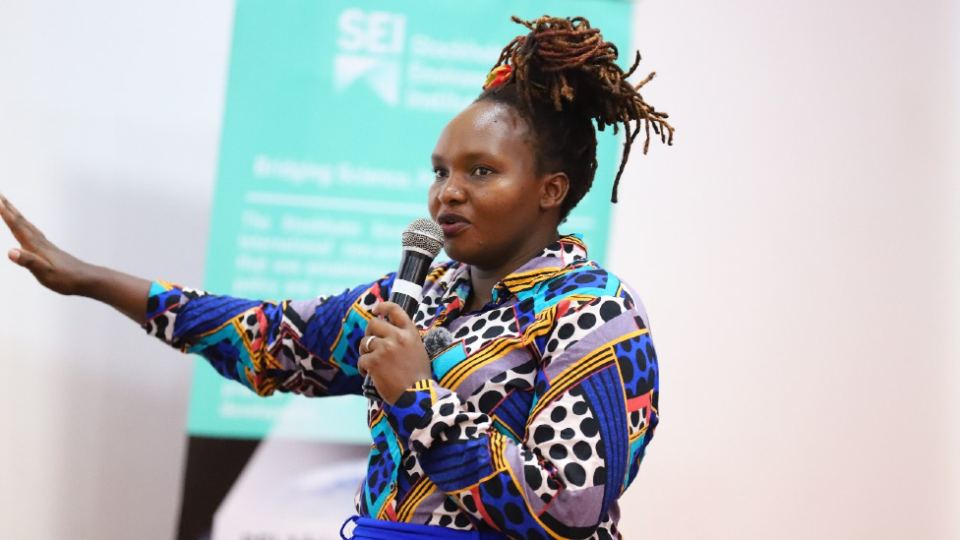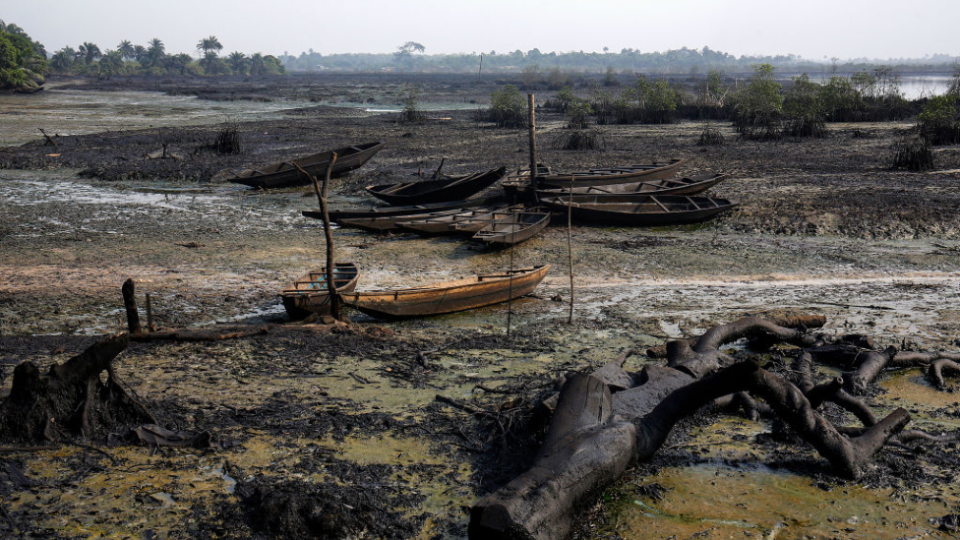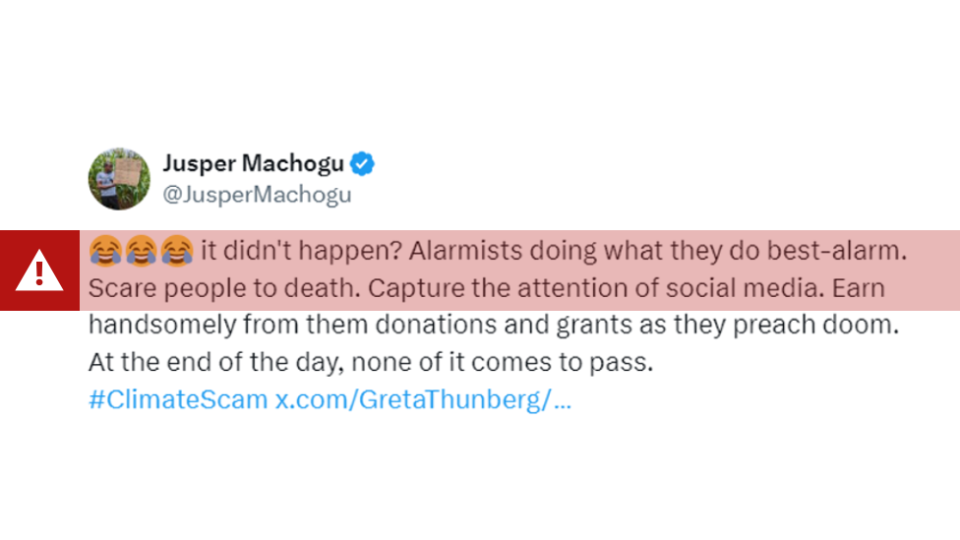Climate change deniers have found a new champion in Kenyan farmer Jusper Machogu. He has become known on social media as a standard-bearer for fossil fuels in Africa, but there is more to his campaign than meets the eye.
At first glance, 29-year-old Mr. Machogu is just a young farmer with a knack for social media.
On
While agricultural content may get him clicks, likes and retweets, it is Mr Machogu’s denial of man-made climate change that has helped boost his online profile.
Since he started posting debunked theories about climate change, he has received thousands of dollars in donations — some of which came from individuals in Western countries linked to fossil fuel interests.
Mr Machogu insists this has not affected his views and says they are genuine.
Scientists have proven that the Earth is warming due to greenhouse gases emitted into the atmosphere when we burn fossil fuels such as oil, gas or coal.
But Mr Machogu disagrees.
“Climate change is largely natural. A warmer climate is good for life,” Machogu falsely claimed in a tweet he posted in February, along with the hashtag #ClimateScam (which he has used hundreds of times).
The Intergovernmental Panel on Climate Change (IPCC) says Africa is “one of the lowest contributors to the greenhouse gas emissions that cause climate change.”
However, it is also “one of the most vulnerable continents” to climate change and its impacts, including more intense and frequent heat waves, prolonged droughts and devastating floods.
Despite all this, Mr Machogu continues to insist that there is “no climate crisis”.
On social media, he has repeatedly posted baseless claims that man-made climate change is not just a “scam” or a “hoax” but also a ploy by Western countries to “keep Africa poor.”
“[His views] certainly stem from a lack of understanding,” says Joyce Kimutai, a climate scientist from Kenya who has contributed to IPCC reports.

“This is not religion, this is not just faith. It’s about analyzing the data and seeing changes in the data.
“That climate, so to speak [change] This is a hoax, it’s simply not true,” added Dr. Kimutai to it.
Machogu began tweeting false and misleading claims about climate change in late 2021, after conducting his “own research” on the topic.
He has since launched his own campaign – which he called “Fossil Fuels for Africa” – arguing that the continent must tap its vast reserves of oil, gas and coal.
“We need fossil fuels to develop our Africa,” Machogu tweeted last year.
This view appears to be shared by some African governments, which have given the green light to new oil and gas projects despite their pledge to “shift” away from fossil fuels.
Leaders such as Ugandan President Yoweri Museveni have argued that it is hypocritical for Western countries to impose restrictions on African states when they have grown rich from fossil fuels.
But climate activists like 24-year-old Nicholas Omonuk from Uganda point out that fossil fuel exploration has not always been synonymous with growth and development in Africa.
“In [Nigeria’s] Oil has been extracted in the Niger Delta since the 20th century, but people there are still poor and continue to suffer from health risks and pollution,” he said.


And yet Mr. Machogu believes he has found a willing audience for his message: He has more than 25,000 followers on X.
“I think Africans really embrace the fact that I say: ‘Fossil fuels for Africa’,” he told the BBC.
But by monitoring conversations involving Mr Machogu’s X-handle, BBC Verify discovered that most of the users engaging with his account are actually based in the US, UK and Canada.
Many of those users also promote conspiracy theories online – not just about climate change, but also about vaccines, Covid-19 or the war in Ukraine.
However niche his views may be, this online community has supported Machogu and helped him finance his campaign.
“By saying whatever I say, I’ve seen my follower count increase and I’ve had people contact me and say, ‘How can we help you?’” he said.


BBC Verify reviewed the fundraising pages set up by Mr Machogu and found he has raised more than $9,000 (£7,000) in donations over the past two years.
Mr Machogu has posted online about using some of these funds to furnish his new home.
But he also claims to have used donations to help dozens of local families by building a well, distributing gas bottles for cooking or connecting their homes to the electricity grid.
His donors included individuals with ties to the fossil fuel industry and to groups known for promoting climate change denial.
But Mr Machogu rejects suggestions that these donations have had any influence on his views on climate change.
“No one told me to change my mind,” Machogu emphasizes.
“I have no problem making money while saying what I think I should say or while doing what is good for my community.”
Podcast: The Kenyan influencer who stands up for climate denial
By sharing his views online, he has undoubtedly caught the attention of many in the West who share his views on fossil fuel exploration and climate change.
Canadian author Jordan Peterson has retweeted one of his posts about fossil fuels, describing him as a “real African,” in contrast to what Mr. Peterson called the “poor, oppressed, useless African” supposedly portrayed by “globalist utopians” .
An American fossil fuel advocate paid Machogu late last year to travel to South Africa for a conference promoting African oil and gas.
And just months earlier, a film crew from Britain traveled to Kisii to interview him for a new documentary that described climate change as an “eccentric environmental fear.”
For some, Machogu’s newfound popularity comes as no surprise.
“There has been a real explosion of fossil fuel development projects in Africa,” said Amy Westervelt, an American climate researcher who reports on efforts to obstruct climate policy.
“And because many countries are adopting policies that limit fossil fuels, Africa is also seen as a big market.
“So it is very useful to have people in Africa say: ‘We want these projects’.”
That is certainly a point Mr Machogu has made time and time again on social media.
But Dr. Kimutai says his promotion of fossil fuels, along with his denial of man-made climate change, could have consequences.
“Because in Africa and Kenya we still have low levels of climate literacy, and if that conspiracy theory spreads to communities or people, it could really undermine climate action.
“That is really very dangerous.”
More stories from BBC Verify:




